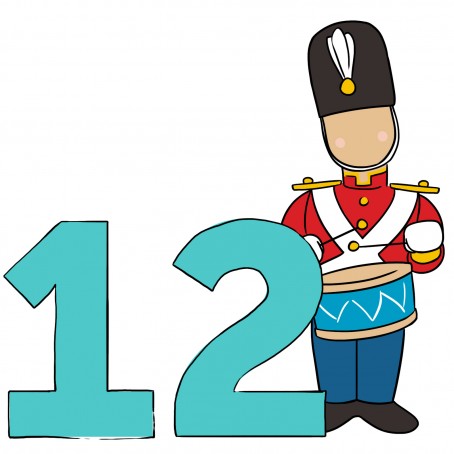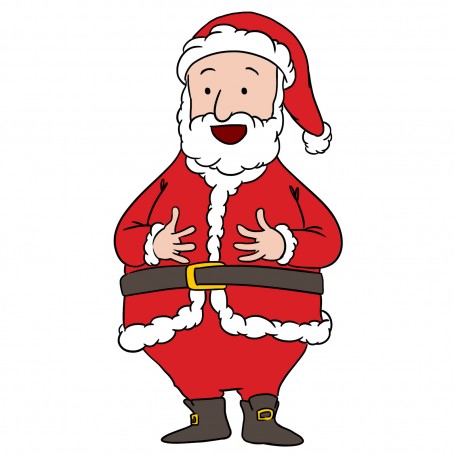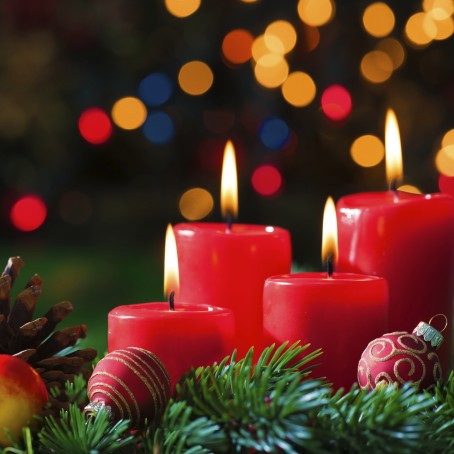Most everyone is familiar with this day, as it is celebrated nearly everywhere the world. Yet, when exactly is April Fools’ Day? And where did April Fools come from? April Fools’ Day is observed on April 1st every year. This day of jokes and pranks is believed to have stemmed from the 16th-century calendar change in France, when New Year’s Day was moved from April 1 to January 1. This action was taken due to the adoption of the Gregorian calendar.
However, a few people were resistant to the calendar change, so they continued to observe New Year’s Day on April 1st, rather than the new date. They were referred to as the “April Fools”, and others started playing mocking tricks on them. This custom endured, and is practiced to this day around the world!
Table of Contents
- Top One Million Words You Need to Know for April Fools’ Day
- Chinese Phrases You Can Use on April Fools’ Day
- Some of the Coolest April Fools’ Pranks To Play on Anybody
- How Can ChineseClass101 Make Your April Fools’ Day Special?
- Top 1000 Most Useful Phrases in Chinese – Testing New Technology

1. Top One Million Words You Need to Know for April Fools’ Day
Do you want to know how to say April Fools’ Day in Chinese? Well, there are millions of ways and words, but here are the top one million Chinese words you really need to know! Simply click this link. Here are some of them you will find useful:
- funny – 有趣 – yǒuqù
- joke – 开玩笑 – kāi wánxiào
- sneaky – 鬼鬼祟祟的 – guǐguǐ suìsuì de
- prankster – 恶作剧的人 – èzuòjù de rén
- prank – 恶作剧 – èzuòjù
- play a joke – 开玩笑 – kāi wánxiào
- humor – 幽默 – yōumò
- fool – 傻瓜 – shǎguā
- deceptive – 欺骗性的 – qīpiànxìng de
- April 1st – 四月一日 – Sìyuè Yī Rì
- lie – 撒谎 – sāhuǎng
- surprise – 让人惊讶 – ràng rén jīngyà
2. Chinese Phrases You Can Use on April Fools’ Day
Don’t limit yourself to practical jokes – use these April Fools’ phrases in Chinese to prank your favorite Chinese friend or colleague!
- All classes for today got canceled.
- 今天所有的课都取消了。
- Jīntiān suǒyǒu de kè dōu qǔxiāo le .
- Someone has just hit your car.
- 刚才有人撞了你的车。
- Gāngcái yǒu rén zhuàng le nǐ de chē .
- I’m getting married.
- 我要结婚了。
- Wǒ yào jiéhūn le.
- You won a free ticket.
- 你赢得了一张免费票。
- Nǐ yíngdé le yì zhāng miǎnfèi piào .
- I’m sorry, but I’ve just broken your favorite pair of glasses.
- 对不起,我刚刚弄坏了你最喜欢的眼镜。
- Duìbùqǐ, wǒ gānggāng nòng huài le nǐ zuì xǐhuān de yǎnjìng .
- They’re giving away free gift cards in front of the building.
- 他们在大楼前赠送免费礼物卡。
- Tāmen zài dàlóu qián zèngsòng miǎnfèi lǐwù kǎ.
- A beautiful lady asked me to give this phone number to you.
- 一位美丽的小姐让我把这个电话号码给你。
- Yí wèi měilì de xiǎojiě ràng wǒ bǎ zhège diànhuà hàomǎ gěi nǐ .
- Can you come downstairs? I have something special for you.
- 你能到楼下来吗?我给你准备了惊喜。
- Nǐ néng dào lóuxià lái ma ? Wǒ gěi nǐ zhǔnbèi le jīngxǐ .
- Thank you for your love letter this morning. I never could have guessed your feelings.
- 谢谢你今天早上的情书。我从不知道你的感情。
- Xièxiè nǐ jīntiān zǎoshàng de qíngshū . Wǒ cóngbù zhīdào nǐ de gǎnqíng .
- I saw your car being towed.
- 我看见你的车正被拖走。
- Wǒ kànjiàn nǐ de chē zhèng bèi tuōzǒu.
- A handsome guy is waiting for you outside.
- 一个帅哥在外面等你。
- Yígè shuàigē zài wàimiàn děng nǐ.
- I learned Chinese in 1 month.
- 我学了一个月的中文。
- Wǒ xuéle yīgèyuè de Zhōngwén.
Choose your victims carefully, though; the idea is to get them to laugh with you, not to hurt their feelings or humiliate them in front of others. Be extra careful if you choose to play a prank on your boss – you don’t want to antagonize them with an inappropriate joke.
3. Some of the Coolest April Fools’ Pranks To Play on Anybody
Right, now that you know the top million April Fools’ words in Chinese, let’s look at some super pranks and tricks to play on friends, colleagues and family. Some April Fools ideas never grow old, while new ones are born every year.
Never joke in such a way that it hurts anyone, or humiliates them badly in front of others – the idea is for everybody to laugh and enjoy the fun! Respect is still key, no matter what day of the year it is.
1- Infestation
This trick is so simple, yet so creepy, it’s almost unbelievable. Take black paper, cut out the silhouette of a giant cockroach, a spider or another insect, and stick it inside the lampshade of a table lamp. When the lamp is switched on, it will look like a monstrous insect is sitting inside the lampshade. Or, get a whole lot of realistic-looking plastic insects, and spread them over a colleague’s desk and chair, or, at home, over the kids’ beds etc. Creep-factor: stellar.
2- Which One Doesn’t Fit?
Put the photo of a celebrity or a notorious politician in a frame, and take it to work on April Fools’ Day. Hang the photo on the staff picture wall, and wait. You’ll be surprised how long it can take for people to notice that one picture doesn’t fit.
3- Something Weird in the Restroom
At work, replace the air freshener in the restroom with something noxious like insect killer, oven cleaner or your own odious mixture in a spray bottle. Be sure to cover the bottle’s body so no one suspects a swap.
Or paint a bar of soap with clear nail polish, and leave it at the hand wash basin. It will not lather.
Or, if your workplace’s restroom has partitioned toilets with short doors, arrange jeans or trousers and shoes on all but one of the toilet covers, so it looks like every stall is occupied. Now wait for complaints, and see how long it takes for someone to figure out the April Fools’ Day prank. You’ll probably wish you had a camera inside the restroom. But, unless you don’t mind getting fired, don’t put your own recording device in there!
4- Call Me Funny
Prepare and print out a few posters with the following instructions: Lion Roar Challenge! Call this number – 123-456-7890 – and leave your best lion’s roar as voicemail! Best roarer will be announced April 10 in the cafeteria. Prize: $100. (Lion’s roar is just an example; you can use any animal call, or even a movie character’s unique sound, such as Chewbacca from Star Wars. The weirder, the funnier. Obviously!) Put the posters up in the office where most of the staff is likely to see them. Now wait for the owner of the number to visit you with murderous intent. Have a conciliatory gift ready that’s not a prank.
5- Minty Cookies
This is another simple but hugely effective prank – simply separate iced cookies, scrape off the icing, and replace it with toothpaste. Serve during lunch or tea break at work, or put in your family’s lunch boxes. Be sure to take photos of your victim’s faces when they first bite into your April Fools’ cookies.
6- Wild Shopping
At your local grocer, place a realistic-looking plastic snake or spider among the fresh vegetables. Now wait around the corner for the first yell.
7- The Oldest Trick in the Book
Don’t forget probably the oldest, yet very effective April Fools’ joke in the book – smearing hand cream or Vaseline on a door handle that most staff, family or friends are likely to use. Yuck to the max!
8- Sneeze On Me
Another golden oldie is also gross, yet harmless and utterly satisfying as a prank. Fill a small spray bottle that you can easily conceal with water. Walk past a friend, colleague or one of your kids, and fake a sneeze while simultaneously spraying them with a bit of water. Expect to be called a totally disgusting person. Add a drop of lovely smelling essential oil to the water for extra confusion.
9- Word Play Repairs
Put a fresh leek in the hand wash basin at home or work, and then tell your housemates or colleagues this: “There’s a huge leak in the restroom/bathroom basin, it’s really serious. Please can someone go have a look?!” Expect exasperation and smiles all around. Note that this prank is only likely to work where people understand English well.
10- Scary Face
Print out a very scary face on an A4 sheet of paper, and place it in a colleague’s, or one of your kid’s drawers, so it’s the first thing they see when they open the drawer. You may not be very popular for a while.
11- Wake Up To Madness
Put foamy shaving cream, or real whipped cream on your hand, and wake your kid up by tickling their nose with it. As long as they get the joke, this could be a wonderful and fun way to start April Fools’ Day.
12- Computer Prank
This one’s fabulous, if you have a bit of time to fiddle with a colleague, friend or your kid’s computer. It is most effective on a computer where most of the icons they use are on the desktop background itself (as opposed to on the bottom task bar).
Take and save a screenshot of their desktop with the icons. Set this screenshot as their background image. Now delete all the working icons. When they return to their computer, wait for the curses when no amount of clicking on the icons works.
13- Monster Under the Cup
This one will also work well anywhere people meet. Take a paper cup, and write the following on it in black pen: “Danger! Don’t lift, big spider underneath.” Place it upside-down on prominent flat surface, such as a kitchen counter, a colleague’s desk or a restaurant table. Expect some truly interesting responses.
14- Prank Door
Write in large letters on a large and noticeable piece of paper: PUSH. Tape this notice on a door that should be pulled to open, and watch the hilarious struggle of those clever souls who actually read signs.
4. How Can ChineseClass101 Make Your April Fools’ Day Special?
If you happen to visit China, or if you work for any Chinese company, knowing the above Chinese prankster phrases can really lighten up your day. Showing you have a sense of humor can go a long way to cement good relationships in any situation. These phrases are at your disposal for free, as well as are these 100 core Chinese words, which you will learn how to pronounce perfectly.

Also, don’t stop at learning April Fools’ phrases in Chinese – bone up your Chinese language skills with these FREE key phrases. Yes, ChineseClass101 doesn’t joke when it comes to effective, fun and easy learning.
Now, as a bonus, test our super-learning technology, and learn the Top 1000 most useful phrases in Chinese below! But that’s not all. Read on to learn how you can be eligible for large enrollment discounts at ChineseClass101.
5. Top 1000 Most Useful Phrases in Chinese – testing new technology
Help us by being a language guinea pig! Listen to this video above with embedded cutting-edge, frequency-based learning technology that enables you to learn large amounts of data in record time.
- Note: This technology is in beta-phase of development, and we invite your input for fine-tuning.
- To participate: Watch the video for instructions, and leave a comment to rate it. Your comment will make you eligible for large enrollment-fee discounts. To watch the video, please click the play button.
Thank you for helping ChineseClass101! We’re serious about making learning Chinese fun.




































